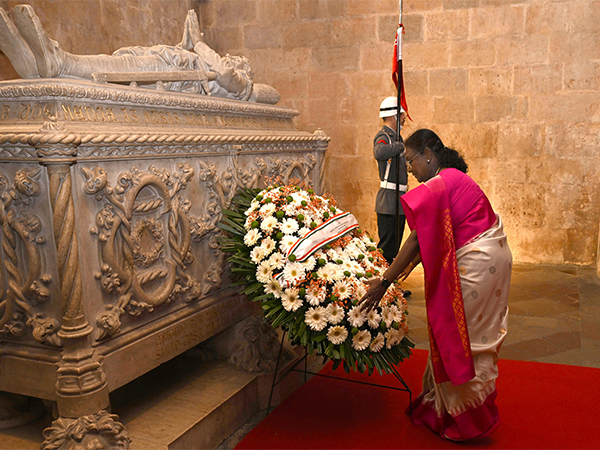European researchers raise alarm over China's attempts to suppress criticism
May 10, 2021

Brussels [Belgium], May 10 : Some of Europe's China researchers have raised alarm over the repeated efforts of Chinese organisations to stifle criticism as Beijing seeks to aggressively crackdown on findings that cast the country in an unflattering light.
South China Morning Post (SCMP) reported that Slovakian academic Matej Simalcik received threatening mails from Luboslav Stora, the director of China-backed Confucius Institute in Bratislava. One of them said: "Are you sleeping well? You should be in very big stress, when you are walking down the street..."
"Be Patient. Big Brother is watching you," read a second mail, sent the next day.
"It is worrying, because it is not like an anonymous attack - I get plenty of those. It is coming from a place of power, someone is holding an official position with them and a Chinese semi-governmental organisation," said Simalcik.
Stora later apologised and passed off as "a joke". This has been seen as part of a wider pattern of behaviour in which China has been accused of trying to muzzle criticism in Europe.
Steve Tsang, director of the China Institute at the School of Oriental and African Studies (SOAS) in London, said that the Confucius Institutes are being run and administered by the propaganda department of the Chinese Communist Party (CCP).
International expert Alexander Dukalskis says that Beijing-linked entities are "trying to punish researchers who reveal findings that cast the government in an unflattering light".
He said that in the past, China-focused scholars faced private difficulties linked to their research, such as visa denials or even having their friends in China contacted, but that strategy has now become more public, such as attacking researchers in state media or via embassies and imposing sanctions, SCMP reported.
"Lately the strategy appears to be more public: attack researchers in state media or via embassies, sanction a few, and hope that the rest are scared off," he added.
In March, the Chinese ambassador to France was summoned after the embassy called French researcher Antoine Bondaz a "petite frappe" -roughly translated as "little creep" - in a row over French parliamentarians visiting Taiwan.
Three days later, Beijing slapped sanctions on Europe's premier China-focused think tank, the Berlin-based Mercator Institute of China Studies, in retaliation for EU sanctions on officials accused of human rights abuses in Xinjiang.
German researcher Adrian Zenz, who has extensively documented the alleged abuses in Xinjiang, and Swedish academic Bjorn Jerden, were also targets of Chinese sanctions.
The European Parliament President David Sassoli called the sanctions against EU lawmakers and organisations unacceptable, stressing that such actions by Beijing will have consequences.
SCMP reported that after the sanctions, a group of European think tank directors sent an open letter decrying Beijing's "targeting independent researchers and civil society institutions".
"There is an uptick in this sort of intimidation. Chinese embassies appear to have been tasked by Beijing to systematically follow up to discuss their concerns and worries about the recent interactions between China and the EU," said a source.



















